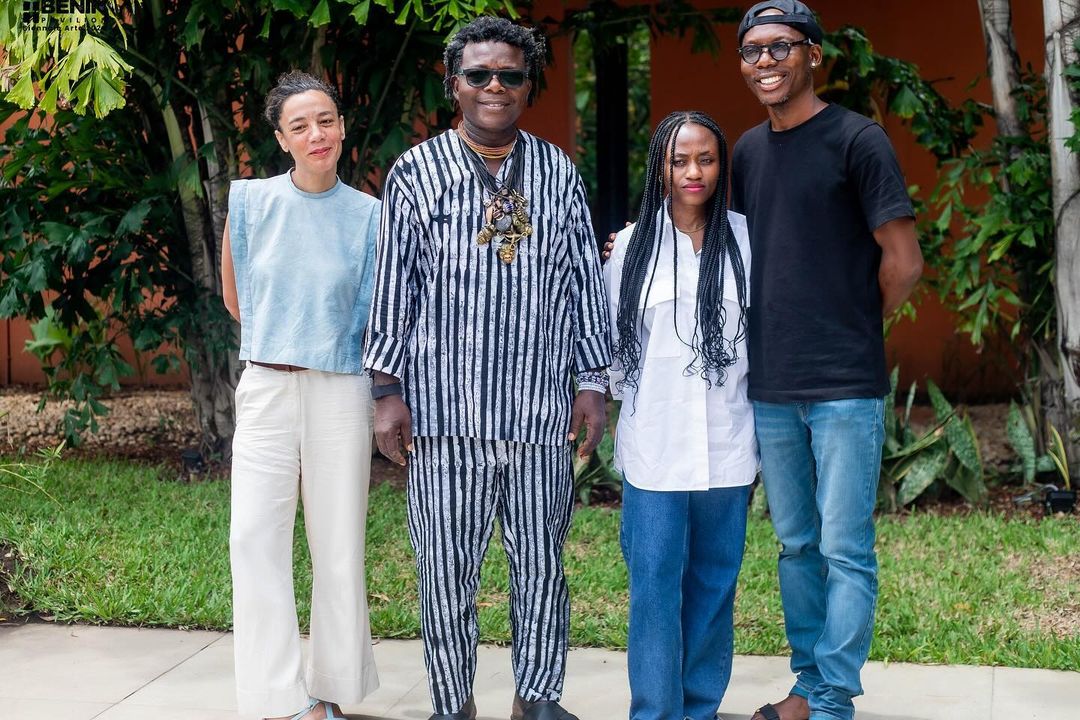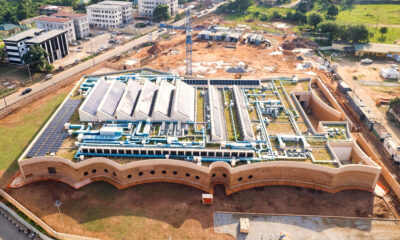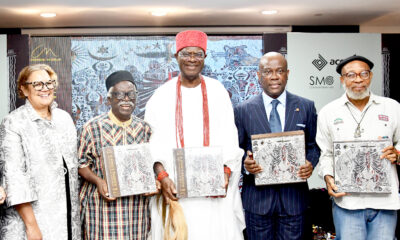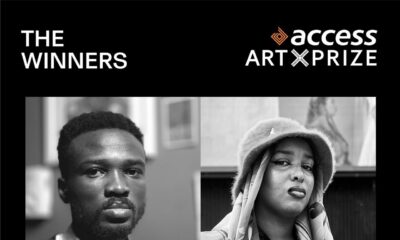Cameroon – “Nemo propheta in patria“
Commissioner: Serge Achille Ndouma
Curators: Paul Emmanuel Loga Mahop, Sandro Orlandi Stagl
Exibitors: Jean Michel Dissake, Hako Hankson, Kendji & Ollo Arts, Patrick-Joël Tatcheda Yonkeu, Guy Wouete, Angelo Accardi, Julia Bornefeld, Cesare Catania, Adélaïde Laurent-Bellue, Franco Mazzucchelli, Rex and Edna Volcan, Giorgio Tentolini, Liu Youju
Venue: Palazzo Donà delle Rose, Fondamente Nove, 5038
The Latin saying “Nemo propheta in patria” signifies the challenge of gaining recognition in one’s birthplace. Conversely, recognition is more likely to occur elsewhere, among strangers. In this context, a prophet is someone often standing out for their ability to perceive beyond conventional norms. Art has consistently played a role in breaking down barriers and disseminating ideas across social and geographical boundaries. The saying encapsulates a universal truth about the difficulties innovators face in their native environment.
Democratic Republic of Congo – Vibranium
Commissioner: Joseph Ibongo Gilungula, Head of Cabinet of the Minister of Culture
Curator: Gabriele Giuseppe Salmi
Exhibitors: Aimé Mpane, Eddy Ekete, Steve Bandoma, Jean Katambayi Mukendi, Kongo Astronauts, Cedrick Sungo, Eddy Kamuanga
Venue: IPAB Opere Riunite Buon Pastore, Ex Capella, Castello 77
Invisible: a ritual act of transmigration, of enthronement, walks slowly, very slowly over the cobblestones in Venice, a collective act about the restitution of materials so cherished, so coveted on this planet. The Democratic Republic of Congo is always at the heart of the political stakes, and it’s acting in Venice. The Biennale Arte 2024 is called “Foreigners Everywhere.” Invisible Foreigners. A tangible path is created between two points, a slow, very slow trajectory, where the artists mark their positioning about human values.
Egypt – Drama 1882 – دراما ١٨٨٢
Commissioner: Ministry of Culture Egypt – Accademia d’Egitto a Roma
Curator/Exhibitor: Wael Shawky
Venue: Giardini
Egyptian artist Wael Shawky works across film, sculpture, performance and drawing to examine and invert common notions of national and religious identity by recasting existing viewpoints of history. Characterised by rigorous research, Shawky’s practice is rooted in his deep relationship to the history and cultural heritage of the Arab world. His work premises history to be a record of subjectively depicted sequences rather than indisputable facts, which he posits to create elaborately choreographed re-stagings and interpretations of historic events.
Ethiopia – Prejudice and Belonging
Commissioner: Amb. Demitu Hambisa Bonsa
Curator: Lemn Sissay OBE FRSL
Exhibitor: Tesfaye Urgessa
Venue: Palazzo Bollani, Castello 3647
Tesfaye Urgessa collects “things” and places them in a conceptual “basement”, tiny images, large ideas, a hand, a torso, turned feet, a song. It is an eternal space of precious objects and ideas. “The basement is where you keep what is important to you”.
In “Prejudice and Belonging“ Tesfaye Urgessa paints some canvases at the same time, say five or ten. “I look at my paintings and then kind of imagine in which painting this particular certain image might work, so I try on one canvas, sometimes it works and I continue and sometimes it doesn’t work and I have to destroy it.” He moves around the studio from one canvas to the other seeking “the chemical reaction” to initiate a “chain reaction”.
Ivory Coast – The Blue Note
Commissioner: Illa Ginette Donwahi
Curator: Simon Njami
Exhibitors: Jems Koko Bi, François Xavier Gbré, Sadikou Oukpedjo, Franck Abd-Bakar Fanny, Marie Claire Messouma Manlanbien
Venue: Centro Culturale Don Orione Artigianelli – Dorsoduro 947
Ivory Coast is a part of Africa which itself is a part of the world. Its identity, since independence, has been built on a broad and assumed pan-Africanism. A national flag should not be locked into a fixed identity but around a common language. In Venice, the common language is art, and each group or individual adapts it through idiomatic forms which are not always easy to translate but can be understood in these singularities. This is the language that artistic creation seeks to capture. In its attempt to express the unspeakable.
Nigeria – Nigeria Imaginary
Commissioner: Godwin Obaseki, Governor of Nigeria’s Edo State
Curator: Aindrea Emelife
Exhibitors: Tunji Adeniyi-Jones, Ndidi Dike, Onyeka Igwe, Toyin Ojih Odutola, Abraham Oghobase, Precious Okoyomon, Yinka Shonibare CBE RA, Fatimah Tuggar
Venue: Palazzo Canal, Dorsoduro 3121 (Rio terà Canal)
“Nigeria Imaginary” explores the role of both great moments in Nigeria’s history – moments of optimism – and the Nigeria of the mind—a Nigeria that could be and is yet to be. Presenting different perspectives and constructed ideas, memories, and nostalgias of Nigeria, “Nigeria Imaginary” leverages an intergenerational and diasporic lens to imagine a Nigeria for the future. These voices are articulated via diverse mediums, from painting, photography, and sculpture, to AR, sound, and film. Yinka Shonibare CBE RA explores the Benin Expedition of 1897 and presents a new way to understand the looted objects, whereas Toyin Ojih Odutola reimagines a new world centred around the Mbari House. Onyeka Igwe and Abraham O. Oghobase explore the colonial hangover and question the future of this legacy whilst Tunji Adeniyi-Jones looks to the history of Nigerian modernism to evoke an alternative art-historical future. Fatimah Tuggar presents a utopic vision for a new Nigeria and Ndidi Dike assesses the intersection between the 2020 EndSARS protests in Nigeria and the global movement of Black Lives Matter. Finally, Precious Okoyomon invites us into a dream state, placing us into the minds and perspectives of contemporary Nigerians so we can reimagine Nigeria with them.
Senegal – Bokk – Bounds
Commissioner: Mariéme Ba
Curator: Massamba Mbaye
Exhibitor: Alioune Diagne
Venue: Arsenale
For its first-ever participation at Biennale Arte, Senegal chose to feature Franco-Senegalese artist Alioune Diagne. Born and trained in Senegal, Diagne has developed his unique technique of “unconscious signs”, small modules that cluster together to form a coherent figurative image. Socially engaged, he has been using this complex sign process to create dynamic paintings depicting daily life scenes in Senegal as well as the major world challenges, from ecology to gender equality, racism, and the notions of transmission and heritage.
The project, titled “Bokk – Bounds,” conceived together with curator Massamba Mbaye, is a response to the theme of Biennale Arte 2024, “Foreigners Everywhere.” In Wolof, “Bokk” means “what is shared”, “held in common”, as well as family ties.
Seychelles – Pala
Commissioner: Emmanuel D’Offay
Curator: Martin Kennedy
Exhibitors: Jude Ally, Ryan Chetty, Danielle Freakley, Juliette Zelime (aka Jadez)
Venue: Arsenale
The Seychelles Pavilion explores issues of national, cultural and social identity. Jude Ally presents mixed media works on canvas. The concept for this installation relates to how people within societies are frequently stranded in irrelevance due to society’s many, frequent and rapid transitions. Ryan Chetty exhibits an homage to the Seychelles nation and its people. It celebrates the genesis of our nation, which is home to diverse, striking individuals who hail from a multitude of racial and ethnic backgrounds. Danielle Freakley invites people to communicate through a new speech mode on sculptures of the Seychelles’ underwater continent. Ribbons are distributed to audiences with further instructions on how to participate in this conversation mode. Jadez explores the concept of The Piñata Effect – Adapt or Perish, which explores the ideology associated with migration in the search for freedom, peace of mind and better pastures.
South Africa – Quiet Ground
Commissioner: Nosipho Nausca-Jean Jezile, Ambassador of South Africa
Curator: Portia Malatjie
Exhibitors: MADEYOULOOK (Molemo Moiloa & Nare Mokgotho)
Venue: Arsenale
MADEYOULOOK’s newly commissioned sound installation Dinokana (2024) explores themes of land and water displacement, sovereignty and rehabilitation. Focusing on perennial strategies of repairing severed relationships to the land, the artists consider the symbolism of the resurrection plant, which, in apparent death, reanimates upon receiving water to draw attention to how two communities in the north of South Africa have approached cycles of loss and repair.
Tanzania – A Flight in Reverse Mirrors
Commissioner: Leah Elias Kihimbi, Deputy Director Ministry of Culture, Arts and Sports
Curator: Enrico Bittoto
Exhibitors: Haji Chilonga, Naby, Happy Robert, Lutengano Mwakisopile (Lute)
Venue: La fabbrica del vedere, Calle del Forno, Cannaregio 3857
“A Flight in Reverse Mirrors” consists of four imaginary rooms, each representative of an era in the history of Tanzania: from the late 19th to the first two decades of the 21st century, and on to a decontextualised future/present. The rooms, in specular dialogue, culminate in the transformation of the last one into an invisible spirit, symbolised by a moth, in metaphorical flight through the other three, concluding its journey in a cyclical process of death and rebirth. The exhibited works – paintings, woodcuts, and site-specific installations – explore themes of travel, migration, nomadism, and the transformations imposed by environmental changes.
Uganda – Wan Acel | Tuli Bamu | Turibamwe | We Are One
Commissioner: Juliana Naumo Akoryo
Curator: Elizabeth Acaye Kerunen
Exhibitors: Artisan Weavers’ Collective, Sana Gateja, Taga Nuwagaba, Xenson Ssenkaba, Jose Hendo, Odur Ronald
Venue: Bragora Gallery, Castello 3496
Wan Acel invites you to de-classify art through the work of a diverse group of thirty-one intergenerational artists. Working both individually and in a collective, they examine their contexts of art production, interrogating prevailing narratives that serve to construct and maintain hierarchies of art creation.
The titles, Wan Acel | Tuli Bamu | Turibamwe, from languages spoken in wider Africa, are representative of the borderless origins of the exhibiting artists. Through explorations of collective memory, Wan Acel reveals and offers an intimate, multi-sensory kaleidoscope of materiality and artisanship.
Zimbabwe – Undone
Commissioner: Raphael Chikukwa, National Gallery of Zimbabwe
Curator: Fadzai Veronica Muchemwa
Exhibitors: Gillian Rosselli, Kombo Chapfika, Moffat Takadiwa, Sekai Machache, Troy Makaza, Victor Nyakauru
Venue: Santa Maria della Pietà, Castello 3701
The Zimbabwe Pavilion at the 60th International Art Exhibition harnesses the concept of kududunuka. Kududunuka becomes an exploration of ideas of the unravelling of the world. The exhibition can be read as thinking about reimagining a potential future. It hearkens to being unfaithful to imposed ideas of time, geography, space, identity, nationhood, humanity, migration, and the suppleness of the ever-changing landscape of what we call home. We stand on the cusp of centuries-old impact of human action. This exhibition provides a space for reflection, building what does not exist yet and looking towards a new horizon.






















